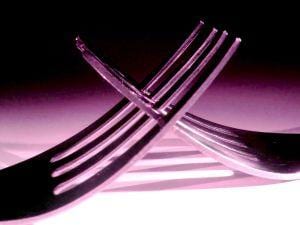When a woman is pregnant, her hormones go wild. Not only do these hormones frequently bring a woman to tears, the Colorado State University warns that they also suppress a woman’s immune system. This makes it much harder for a woman to fight off many of the typically insignificant food-borne illnesses. This also puts a baby at risk of contracting food-borne illnesses through the mother. To prevent tragedy, avoid these 10 things not to eat while pregnant.
Raw Meat
Raw and rare meats are full of potentially dangerous bacteria such as salmonella and toxoplasmosis. Both bacterial infections can be transmitted to a fetus, causing birth defects, stillbirth or spontaneous abortion. To avoid these bacterial infections, it is important to cook all meat to 165 degrees F or higher.
Some Fish
While antioxidants like omega-3 fatty acids make fish a healthy meal for pregnant women, some fish are known to contain high concentrations of mercury. High amounts of mercury can cause brain damage to your growing baby. Fish to avoid include sushi fish, shark, fresh tuna, mackerel and swordfish. Canned tuna is typically safe for consumption in moderation.
River and lake fish also are risky because of contaminants from pollution and algae. Check with your local fish and game department to ensure that the local fish is OK to eat.
Deli Meats
Listeria, commonly found in deli meats, has the ability to pass through the placental walls and infect a fetus. This contamination can cause blood poisoning or infection that may result in a spontaneous abortion. However, the American Pregnancy Association suggests that deli meats can be eaten if first heated until steaming.
Smoked Seafood
Smoked seafood is susceptible to carrying listeria. This occurs because many smoked seafood items are cooked using a cold-smoking process; they never reach a temperature high enough to kill bacteria. However, canned and shelf-stable smoked seafood is OK for consumption by pregnant women. These varieties have gone through more processes to eliminate contaminants.
Raw Eggs
Salmonella is often carried on the shell of an egg. This can easily contaminate the egg itself and, when uncooked, can contaminate a person. Avoid eating homemade mayonnaise, certain salad dressings and uncooked batter or cookie dough.
Imported Cheese
Imported brie, soft mozzarella, feta and any other moist, soft cheese may carry listeria. When these cheeses are created, they are stored in damp, warm environments perfect for breeding bacteria. Stick to harder cheeses such as Asiago and cheddar or domestic soft cheeses that have been pasteurized.
Unwashed Roughage
Although it’s rare, soil used to grow some fruits and vegetables may become contaminated with toxoplasmosis. Toxoplasmosis can be passed to a fetus and may have dire consequences. To avoid this infection, it is important to wash all fruits and vegetables thoroughly before eating.
Unpasteurized Drinks
While the term “fresh” sounds healthy and appealing, it can spell danger for pregnant women in regards to milk and juice. Unpasteurized milks and juices are more breeding grounds for deadly listeria. Opt for store brands over fresh-squeezed or farm varieties.
Pate
As with other moist and undercooked meats, pate and other meat spreads may contain listeria and should be avoided while pregnant.
Raw Shellfish
While oysters on the half shell may be just the aphrodisiac that contributed to your pregnancy, you should avoid them while you’re pregnant. Other raw shellfish to not eat while pregnant include clams and mussels. These bivalves are notorious for causing food-borne illness from obscure algae and bacterial infections.





